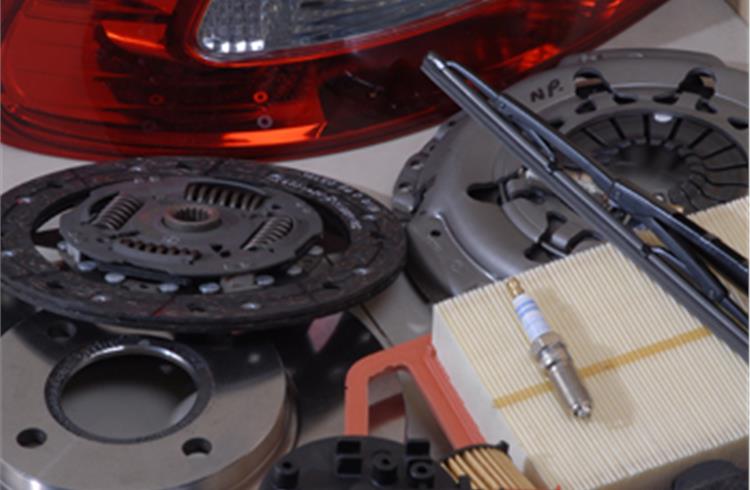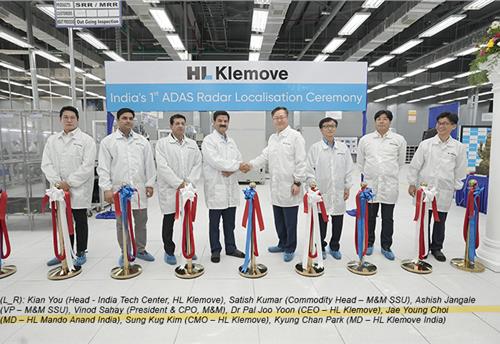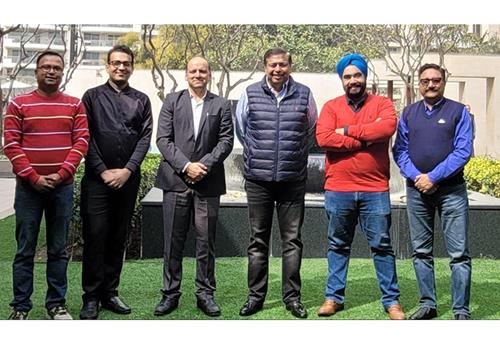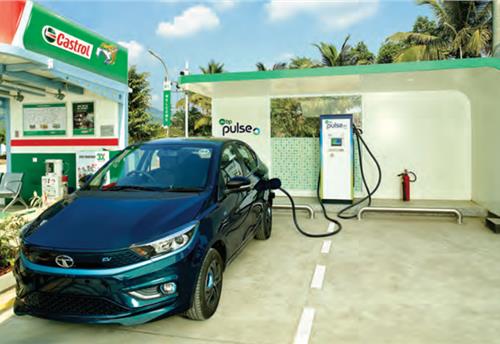Time to call a fake a fake
The drive against counterfeit parts is gathering momentum but much remains to be done.
The spurious parts problem, other than seriously compromising safety in vehicles which use fake parts, further translates into a revenue loss for an industry that is now struggling with slowing domestic sales and dipping market sentiment. It also means fewer taxes for the government because those who make fake parts do not pay taxes. And the spurious parts industry seems to be spread all over the country, with well networked agents in metros and B-towns. From what we have gleaned, the north of the country is more affected than the other regions. There is a large network of unorganised distribution channels, fragmented and street-side mechanics who all contribute to the growth of this parasitic industry.
Exacerbating the problem to some extent is the lack of focus by OEMs on the aftermarket as well as low awareness among vehicle owners of the need to buy only genuine spare parts.
According to Dilip Chenoy, director general, SIAM, “The counterfeit business is burgeoning with the growing unorganised sector in India. The difference in the price of the original and counterfeit part is the main reason for more market turnover. The counterfeit also sells due to its easy availability in the local auto markets. This menace can be curbed by spreading awareness among consumers or buyers and also make them understand the safety hazards of using spurious parts. The most important step to stop the growth of the spurious industry is to make law enforcing agencies aware of the situation and ensuring coordinated action as the government also loses a lot of revenue. The OEMs also need to devise a strategy to bridge the price gap and also ensure availability.”
Increasing concern
Most of the automotive products copied are of the top-selling automobile models and consumers could be seriously affected while using them in their vehicles. There has been no study on the number and type of accidents caused by fake parts but leading automotive companies hit badly by the spurious parts problem claim that as this business grows the number of accidents will rise as well.
Examples of the most rampantly counterfeited products include bearings, brake pads, brake discs, rubber rings, axle boots and suspension parts, all of which are related to safety rather than the cosmetic appearance of a vehicle.
Almost every automotive or component maker that we spoke to is aware of the severity of the problem. Several carmakers say that in most cases, a consumer is not aware that he is buying a fake part since the packaging of counterfeits is just like that of original products. This usually happens when consumers visit unauthorised dealers after the vehicle’s warranty period is over, looking to save costs on vehicle repair and maintenance. There are also cases where a consumer knowingly buys a fake component that is priced half of what a branded, original product would cost.
Luxury carmakers have also been affected by this menace. Mercedes-Benz is at present running a full-fledged educational campaign to educate consumers the benefits of using genuine spare parts. Through the campaign the German carmaker informs consumers that the company has 26 world-class service centres across India, where only the best quality parts are used. The campaign also teaches them how to recognise the genuine packaging. Original Mercedes-Benz parts bear the trademarked three-pointed star in a ring, a hologram and a 10-digit part number. Not only do they come with a a worldwide guarantee but importantly have also been tested as per international standards.
What does the law say?
Indian law punishes sellers of fake components with a prison term of between six months and three years, and a fine of between Rs 50,000 and Rs 2 lakh under the Trade Marks Act, 1999. However, component makers say that this law should be more strictly implemented. Industry associations along with vehicle manufacturers and component makers regularly conduct raids and also awareness building programmes but the fact of the matter is that their efforts, while laudable, are yet to gain real strength. They need governmental backing to send a strong message to the burgeoning counterfeit industry that it will not be tolerated any more.
Adds Chenoy, “The concern of the automobile manufacturers is justified as they are facing losses due to easy availability of spurious spare parts. These parts like brake liners, clutch plates, lighting products are generally fast-moving items, easy to copy and do not require much investment. To address this, the OEMs adopt several security preventions like holograms, exclusive packing and serial numbers but the counterfeit parts still manages to sell. Also the fact that manufacture and sale of spurious parts is still not recognised as a ‘cognizable offence’ adds to their woes.”
As and when the police are informed of an offence, they are required to take an opinion from the Registrar of Trademarks before making a search or seizure. This often gives leeway to the counterfeiters to escape and also get rid of the incriminating evidence.
Everyone’s war
Most of the leading automotive companies have taken up cudgels to protect their brand. Even newcomers to the Indian market are evaluating it as a serious responsibility.
Component major Bosch is one company which has taken a lead in tackling the problem head-on. In 2007, it evolved a definite structure to handle brand protection activities across the country.
Says Ravi Krishnamurthi, vice-president (Automotive Aftermarket), “The Automotive Aftermarket team conducts regular raids at the retailers, wholesalers, printers and at the manufacturers’ end too. Efforts have been stepped up further to combat the counterfeiters. With almost two raids per day, 503 raids have been successfully completed resulting in 486 arrests till date. The team has even conducted raids in China to unearth fake spark plugs. Our ultimate aim is to make every consumer a policeman to check and buy only genuine Bosch products.” Bosch is also countering the menace through continuous product innovation and unique anti-spurious packaging, with customers informed about this through educational programmes.
Some of the initiatives on product/packaging are a shift from metal cap Diesel Filter Insert (DFI) to metal-free DFI and multi-level security label for filter packaging. For diesel Fuel Injection Equipment (FIE), Bosch has introduced tamper-proof capsule packaging and pilfer-proof label on packaging. The overhaul kit ensures that the customer gets all the required genuine spare parts for Fuel Injection Pump (FIP) overhaul in one single kit. The past couple of years have also seen the influx of spurious products, mainly spark plugs, from China. To curb this menace, the Government of India has come out with a new system as part of a larger framework of ‘Border Procedure Rules’. Employing this opportunity, Bosch has already registered a complaint with the customs officials, informing them about the type of infringement importers are carrying out by importing spurious Bosch spark plugs from China. The customs authorities on their part will keep Bosch updated on all spark plug imports from China for proper verification before release to the market.
Elofic Industries, which makes a wide range of automotive filters, has been in the market since the last 30 years. Affected by counterfeit parts, the company has raided manufacturers/dealers/printers in the past but these experiences have not been too fruitful. KD Sahni, joint managing director, is emphatic: “The raids have all been ineffective. Recently ACMA has co-ordinated joint raids for Elofic and a few more companies. However, we need to take a different approach. The only way the fake part menace can be curbed is by reducing the price gap between genuine and fake parts. The government needs to correct the anomaly in the MRP-based excise valuation where only 31.5 percent abatement is allowed which effectively makes the excise duty rate to about 20 percent. The abatement should be around 45 percent to accommodate all taxes, wholesaler and dealer margins. The manufacturers should also price the products accordingly to minimise the gap. As the fake auto parts trade is purely in cash (without invoice), it is very lucrative for dealers to indulge in it.”
Customer education is key
Just like Bosch, Toyota Kirloskar Motors too has been involved in educating customers since 2003. According to Sandeep Singh, deputy managing director (marketing), “Every year, a month-long educational programme is conducted at the Toyota dealer facility to inform customers about counterfeit parts. TKM has not been adversely affected by this as most of our products are produced by incorporating high technological standards and counterfeiting them takes lot of time and effort. But in the long run, the situation may worsen and thus we are preparing ourselves well in advance.” Singh adds, “The vehicle that has been impacted the most in TKM’s case is the Qualis. It was phased out at the end of 2004; this has led to the perception that Toyota has stopped the supply of parts for the Qualis. If Toyota phases out a vehicle, it continues to manufacture its parts for the next 10 years; thus customers need not rely on counterfeit parts.”
Carmakers such as Tata Motors, Hyundai and Maruti Suzuki and two-wheeler manufacturers like Bajaj Auto and Hero Honda are among others who are also taking active steps to tackle this menace. For Tata Motors the stakes are high. Some of its products where the rate of spurious parts circulation is high include air/oil/fuel filters, belts, hoses, ball joints, seals, brake pads, gears, bumpers, rubber /plastic items such as bushes/trims, side/rear view mirrors, electrical switches/horns, lamps/bulbs/gauges, bearings, and fenders. No wonder the company has a task force that conducts raids on spurious parts manufacturers and traders. It also conducts regular customer education programmes on the usage of genuine spares to generate and increase awareness among end users.
Hindustan Motors has also received complaints from buyers that some of its dealers are involved in the sale of spurious parts, often at OEM-recommended prices to accrue higher profit. A few discerning customers pointed this out to the company, after which HM initiated action against the concerned dealers. While it has not achieved much success against the unorganised service sector engaged in this trade, it has an active customer education programme underway through display of original and fake parts at dealerships, and pamphlets and posters that explain the dangers of using fake parts. The company has also designed holograms that are affixed on genuine parts. According to Vijay Kumar, executive vice-president and business head, “At HM-Mitsubishi we have taken a number of steps to reduce the price of critical parts by negotiating with our collaborator MMC, by localisation, by reducing our margins and in some cases selling parts at a loss to the company.”
Even emerging carmakers have recognised the enormity of the problem. Says Ashish Sinharoy, vice-president – communications and corporate affairs, Renault India, “Renault believes that the naive consumer deliberately buys cheaper and unauthorised substitutes to save money. As we expand in India, we will take up educational initiatives like others have.” Suzuki Motorcycles’ Sanjay Bhatia, head of department – spare parts, feels that lowering of price is not a way out as the counterfeit parts problem is deep rooted; instead awareness through various media will help consumer reduce purchase and usage of fake parts. He says, “We are very much conscious of the problem of fake parts. The best way to curb this menace is by tightening the law.” Bhatia also suggests that automotive part makers should not supply in the aftermarket but only to OEMs . Also, SIAM should lobby for an update in the Indian Penal Code to ensure effective punitive measures.
Industry bodies like ACMA and SIAM are focussed on creating awareness about the use of genuine parts. ACMA's ‘Asli-Naqli’ show informs visitors about counterfeits in the market and also helps them learn how to distinguish genuine products from fakes. As part of the programme, ACMA member companies such as Delphi-TVS Diesel Systems, Brakes India, Lucas, GKN Driveshafts, Delux Bearings and Talbros Automotive Components, to name a few hit by counterfeiting display both genuine and fake products.
New technology can also be of assistance to tackle the problem. Packaging solutions provider Bilcare Ltd has recently launched its anti-counterfeit technology for the Indian automobile industry. The company has developed a process, equipped with nano technology and Bluetooth, that can help authenticate products. In the final analysis, what is clear is that vehicle and component manufacturers in India are seized of the counterfeit parts problem and the urgency to act on it but it is imperative that they are assisted by the law of the land.
RELATED ARTICLES
Branded content: HL Klemove inaugurates first Local ADAS Radar Manufacturing Unit in India, marks a significant achievement in “Make in India” initiative
The inauguration ceremony was held in the presence of Vinod Sahay, President and CPO of Mahindra & Mahindra Ltd. and Dr....
BluWheelz to 'Green Up' logistics sector
With their EVs-as-a-service solution, the startup is playing it smart with costs and looking to electrify the entire seg...
BRANDED CONTENT: Spearheading the EV revolution in India
Jio-bp is a joint venture between Reliance Industries and BP PLC where both entities have married international expertis...





 By Autocar Pro News Desk
By Autocar Pro News Desk
 20 Dec 2008
20 Dec 2008
 8888 Views
8888 Views









